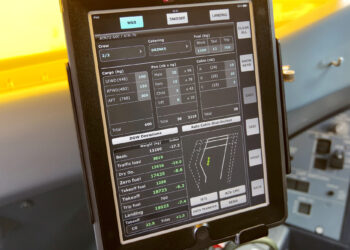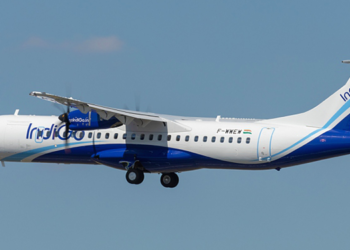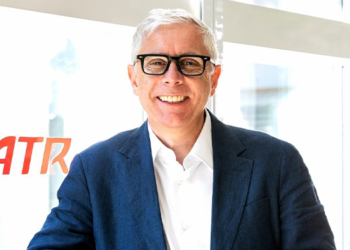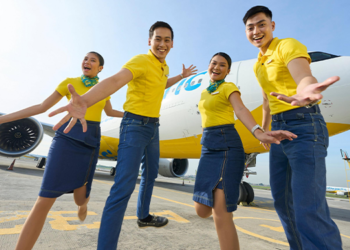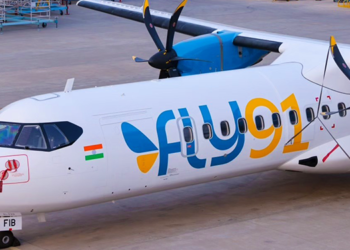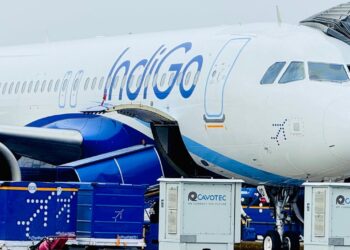In a pioneering move towards greener aviation, AirSwift has become the first airline to benefit from a groundbreaking initiative that introduces a 6% Sustainable Aviation Fuel (SAF) blend for ferry flights. The initiative involves a 30% SAF blend for one out of every five deliveries of new ATR aircraft to Nordic Aviation Capital (NAC), marking a significant leap in the airline industry’s commitment to reducing carbon emissions.
The program translates to a remarkable four tonnes of CO2 saved for each batch of five ATR aircraft, with the 6% SAF blend specifically applied to the first leg of every ferry flight starting from 2023. This groundbreaking endeavor aims to make aviation more sustainable by incorporating cleaner fuels into the industry’s standard practices.
Nathalie Tarnaud Laude, ATR’s Chief Executive Officer, says:
“This joint initiative from NAC and AirSwift demonstrates how much our customers are demanding tangible solutions to reduce emissions. As a manufacturer, all our efforts in terms of technology and innovation are going in that direction, leveraging an already highly efficient platform. We were the first to fly a commercial aircraft with 100% SAF in both engines and we will continue pushing the whole ecosystem towards more SAF availability, convinced that sustainable fuels will play a critical role in the decarbonisation of air transport both in the short and long-term.”
AirSwift, a Philippines-based airline, proudly led the way in this initiative with the departure of its new ATR 72-600 from NAC Skyline in Toulouse on November 27, 2023. This particular aircraft is set to serve AirSwift’s hub in El Nido, located on the picturesque island of Palawan.
Alfonso Reyes, CEO of AirSwift, says,
“We are very pleased to partner with NAC and ATR for this new addition to our fleet, and especially that we will be the first customer in Southeast Asia to use SAF for our initial delivery flight. Ayala and AirSWIFT are fully committed to sustainability and to reducing our carbon emissions as we work towards our Net Zero 2050 goals. We are hopeful that greater investment in this space will create the momentum necessary for SAF to become more widely available on a commercial basis in the coming years.”
The ATR 72-600 stands out as the most environmentally friendly regional aircraft currently available in the market. Combining high-efficiency turboprop technology with ATR’s ongoing dedication to reducing carbon emissions and operational costs, the ATR 72-600 achieves an impressive 45% reduction in CO2 emissions compared to similar-sized regional jets.
Moreover, the aircraft is already certified to fly with a 50% SAF blend, aligning with ATR’s ambitious commitment to ensuring 100% SAF readiness across its aircraft family by 2025.
Joël Navaron, President of TotalEnergies Aviation, declares
“We are proud to offer solutions that emit less CO2, such as SAF. Our mission is to support our customers in their energy transition. These deliveries are a new step forward for TotalEnergies, in line with our ambition to achieve carbon neutrality by 2050, together with the society”
Norman C.T. Liu, President & CEO of NAC, says,
“This is an important step for NAC to manage our environmental impact. We are pleased to play a role in facilitating our customer’s transition to SAF.”
AirSwift’s adoption of this program signals a significant step forward in the aviation industry’s collective efforts to address environmental concerns and reduce its carbon footprint.






